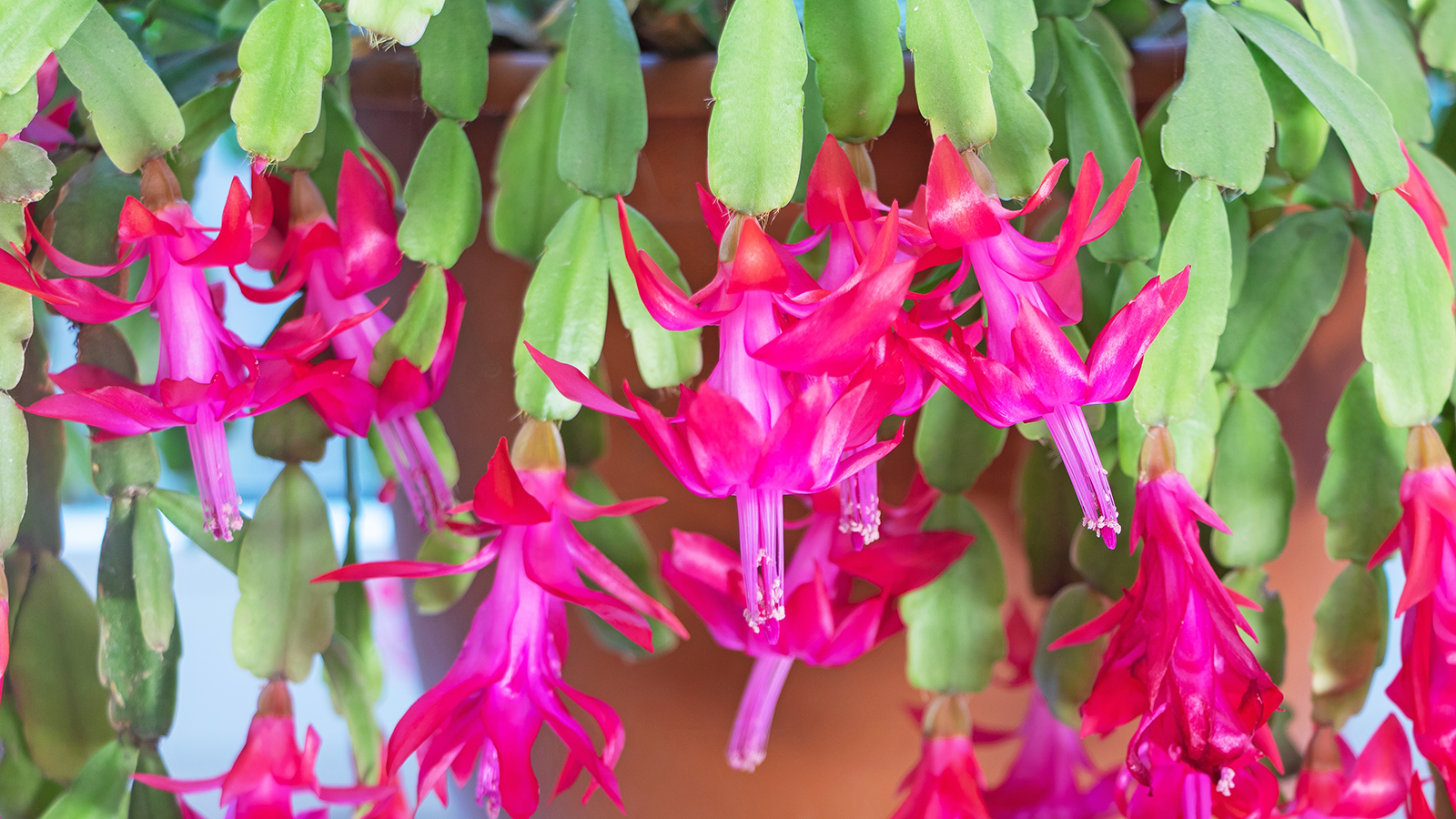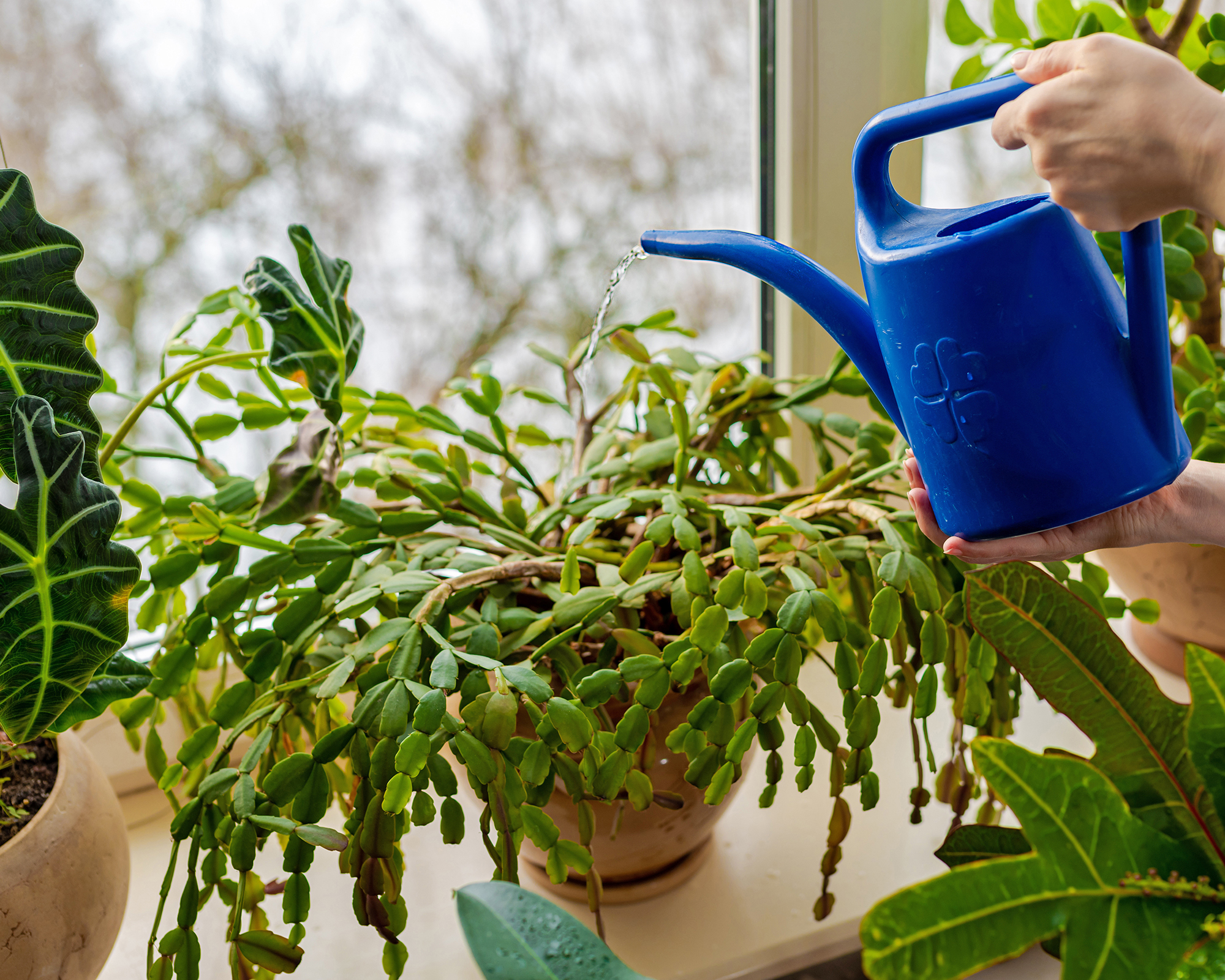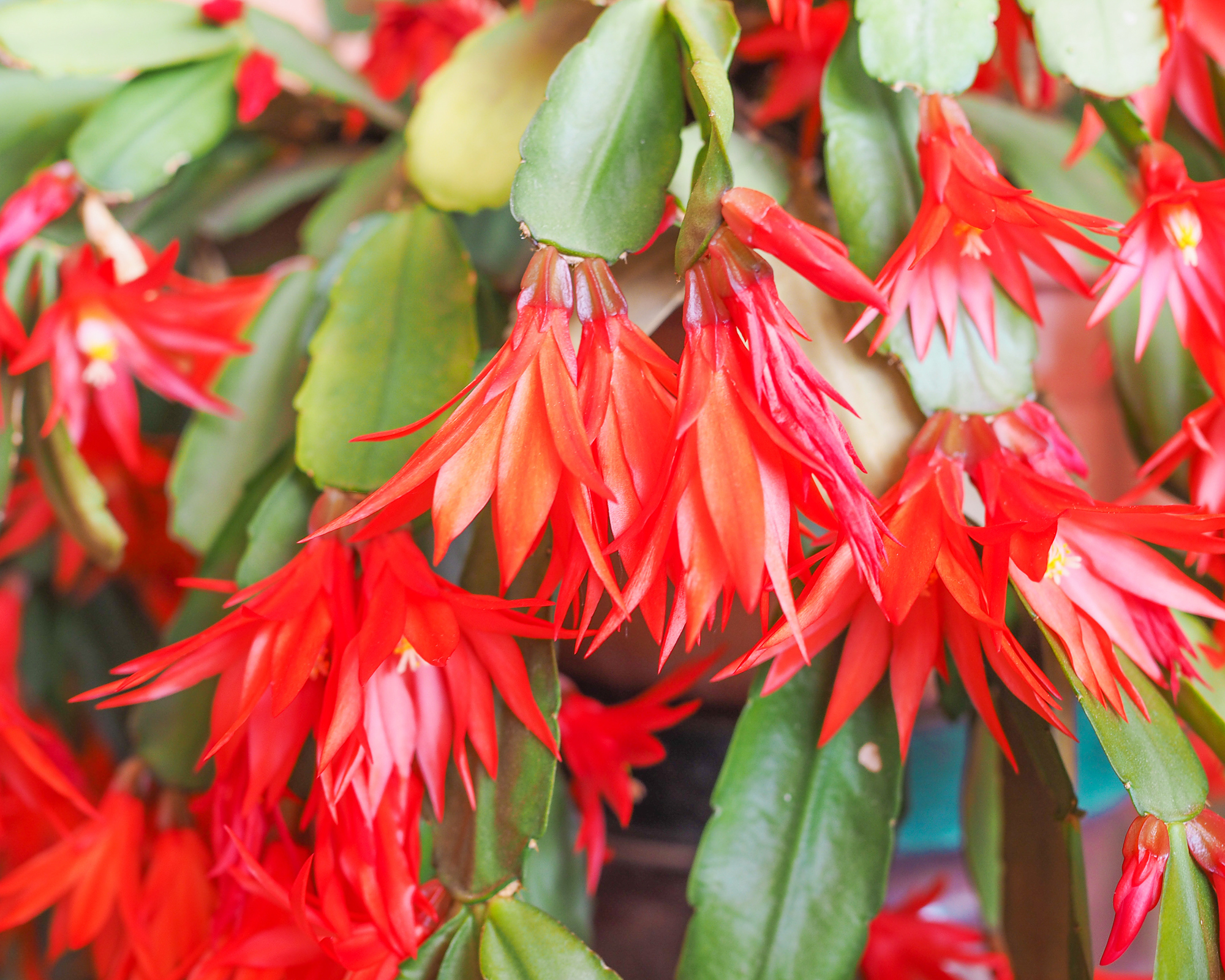How To Make A Christmas Cactus Bloom – And Then Bloom Again For Double The Flowers
The ever-popular Christmas cactus needs a little encouragement to produce stunning tropical blooms over the holiday season, especially if you want them twice.


Christmas cactus (Schlumbergera x buckleyi) is a popular seasonal plant prized for its striking winter flowers. The succulents can endure for decades, so knowing how to get a Christmas cactus to bloom year after year is of prime importance to growers.
While Christmas cactus care is fairly easy, the plants may need a little encouragement to reflower, but it's well worth the trouble. By creating the right growing conditions, it's possible to not only force rebloom in time for the holidays, but again a few months later.
In addition to the Christmas cactus, with its white or bright pink flowers, you can also use this advice for the other types of holiday cactus, to help them rebloom. Thanksgiving cactus care and Easter cactus care are very similar, although the plants have slightly different bloom times.
Discover how to make a Christmas cactus bloom so you can enjoy a spectacular holiday show year after year.
What Makes a Christmas Cactus Bloom in the Wild?
Christmas cactus plants are different from desert cacti. Native to the rainforest in Brazil, they are epiphyte plants that grow in trees or between rocks and gather water and nutrients from the surrounding environment. Unlike other cacti, they need a lot of moisture, warmth, and indirect or filtered light.
In its natural setting, Christmas cactus flowers at the end of the rainy season. Living near the equator, the plants don’t experience major shifts in daylight hours, but as days get a little shorter in fall, they start to set buds. Slightly cooler temperatures also trigger flowering.

How to Get a Christmas Cactus to Bloom
Knowing how to make a Christmas cactus bloom indoors is all about mimicking the plant's natural conditions for flowering. Be patient, avoid the most common Christmas cactus problems, and employ several strategies at once for the best results:
Sign up for the Gardening Know How newsletter today and receive a free copy of our e-book "How to Grow Delicious Tomatoes".
- Get the Lighting Right
Recreate the natural blooming conditions by giving your Christmas cactus bright, indirect light during the day. Then, about eight weeks before you want it to bloom, ensure it gets 13 or more hours of continuous darkness each night. Even a slight disruption in the darkness can prevent flowering. Cover the plant with a blanket, box or shade cloth (like this one from Amazon) at night to ensure no interruptions. - Cool it Down
Flowers are also triggered by slightly cooler temperatures. The ideal Christmas cactus temperature is between 60 and 68°F (15 to 20°C). Avoid any sudden or drastic changes in temperature, which can cause bud drop. - Water Correctly
Proper Christmas cactus watering is crucial. Although they are native to the rainforest, the plants should never be overwatered. Keep the soil moist but not soggy. Use a medium that drains very well. Leading up to bloom time, restrict water slightly – this will send stress signals it’s time to flower. Water plants only when the topmost, about 1 inch (2.5cm), layer of soil is dry to the touch. Consider buying a moisture meter, like this simple one from Amazon, to monitor the moisture level of your soil. - Fertilize Well in Advance
As with other plants, Christmas cactus fertilizer, such as this organic succulent & cactus plant food from Amazon, is best applied during its growing season (spring and summer). In the fall, switch to a fertilizer with lower or no nitrogen to encourage flower over leaf growth. Or simply cut back entirely on fertilizing. - Prune in Summer
Learning how to prune a Christmas cactus is an important part of its care. Pinching back plants in summer encourages more flowering in winter; pinching tips will push the plant to branch more, giving you more flower buds later. - Stay Put
Stress can cause damage as a Christmas cactus begins to develop flower buds. Don’t move your plant in the weeks leading up to flowering. The stress of moving it can trigger bud drop. Choose a place with bright but indirect light away from drafts.
How to Make a Christmas Cactus Bloom Again
Many people treat it like an annual houseplant, but if you know how to make your Christmas cactus bloom again, you can enjoy it year-round. To encourage a second bloom later in winter or spring, reduce watering throughout the dormant season. Only water when the soil feels dry to the touch.
Continue to provide the plant with 13 or more hours of darkness at night. Also, keep it cool. Essentially, you’re creating seasonal conditions for plant dormancy, which encourage a second blooming period.
Reblooming is easy if you find the right spot for the plant. Get it to a cool spot with nighttime darkness, mostly ignore it, and it will bloom again.

What if Your Christmas Cactus Won’t Bloom?
If you cannot mimic the plant's natural conditions, then your Christmas cactus might not bloom. However, other issues can impact flowering, such as common Christmas cactus diseases or pests.
Christmas cactus wilting or yellow leaves also indicate problems that will affect rebloom, so diagnose these issues before worrying about flowering.
When repotting a Christmas cactus, use a light soil mix and a container that drains well to avoid root rot. We recommend this Back to the Roots 100% Organic Succulent & Cacti Mix, available on Amazon.
In addition, placing your plant in a drafty spot can cause buds dropping off Christmas cactus before blooming has occurred. Bud drop is a common cause of poor flowering. The plant is sensitive to changing conditions, so take time to find just the right spot for your plant and avoid moving it.
How Many Times a Year Does a Christmas Cactus Bloom?
Christmas cactus usually booms once a year, but with the right care, you can make it bloom twice. Plants can flower for weeks at a time – as many as eight weeks – so get it right and you can enjoy fabulous blooms for several months of the year.
Should a Christmas Cactus be Deadheaded?
Deadheading can be helpful in maintaining the health of Christmas cactus plants. The removal of spent blooms, as they begin to fade, can aid growers in keeping indoor containers tidy. Trimming old flowers may also help to boost bloom and encourage new growth.

Mary Ellen Ellis has been gardening for over 20 years. With degrees in Chemistry and Biology, Mary Ellen's specialties are flowers, native plants, and herbs.
- Nikki TilleySenior Editor
- Melanie GriffithsEditor in Chief
- Amy DraissDigital Community Manager